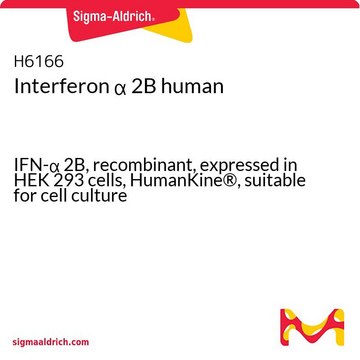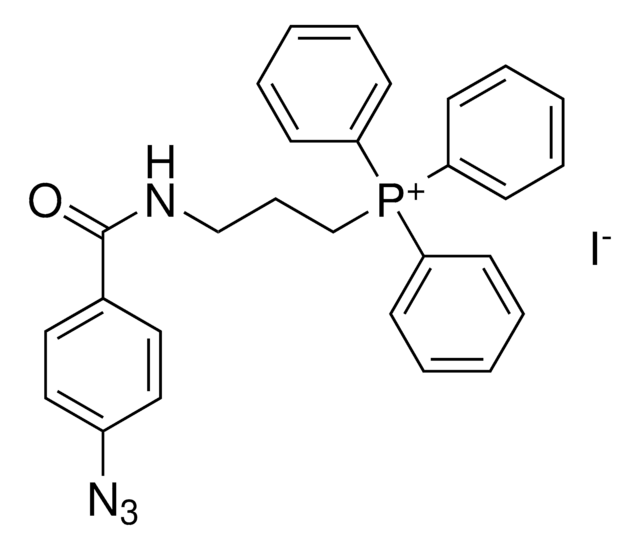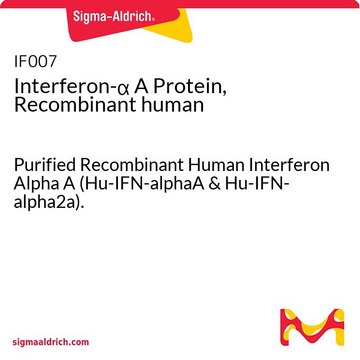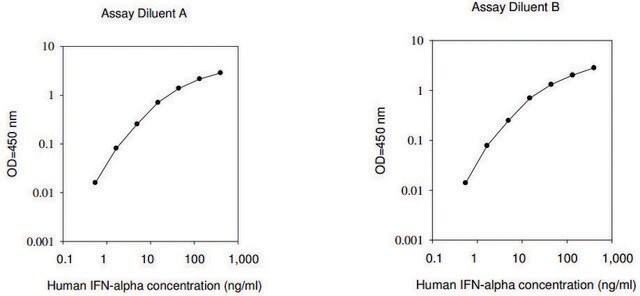SRP3061
IFN-omega human
recombinant, expressed in E. coli, ≥98% (SDS-PAGE), ≥98% (HPLC), suitable for cell culture
Sinonimo/i:
IFN alpha II-1, IFNW1, Interferon-alpha II-1, Interferon-omega
About This Item
Prodotti consigliati
Origine biologica
human
Ricombinante
expressed in E. coli
Saggio
≥98% (HPLC)
≥98% (SDS-PAGE)
Stato
lyophilized
Potenza
≤0.01 ng/mL ED50
PM
19.9 kDa
Confezionamento
pkg of 100 μg
tecniche
cell culture | mammalian: suitable
Impurezze
<0.1 EU/μg endotoxin, tested
Colore
white to off-white
N° accesso UniProt
Condizioni di spedizione
wet ice
Temperatura di conservazione
−20°C
Informazioni sul gene
human ... IFNW1(3467)
Descrizione generale
Azioni biochim/fisiol
Sequenza
Stato fisico
Ricostituzione
Codice della classe di stoccaggio
11 - Combustible Solids
Classe di pericolosità dell'acqua (WGK)
WGK 3
Punto d’infiammabilità (°F)
Not applicable
Punto d’infiammabilità (°C)
Not applicable
Scegli una delle versioni più recenti:
Certificati d'analisi (COA)
Non trovi la versione di tuo interesse?
Se hai bisogno di una versione specifica, puoi cercare il certificato tramite il numero di lotto.
Possiedi già questo prodotto?
I documenti relativi ai prodotti acquistati recentemente sono disponibili nell’Archivio dei documenti.
Il team dei nostri ricercatori vanta grande esperienza in tutte le aree della ricerca quali Life Science, scienza dei materiali, sintesi chimica, cromatografia, discipline analitiche, ecc..
Contatta l'Assistenza Tecnica.








